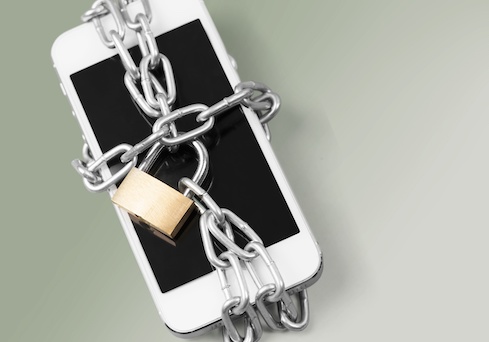Cybersecurity News
Chrome: 70% of all security bugs are memory safety issues
Google software engineers are looking into ways of eliminating memory management-related bugs from Chrome.23 May 2020
5 Tips for Fighting Credential Stuffing Attacks
 With stolen credentials an easy find online, what are some measures to put in place to keep hackers from breaking into secure accounts?
With stolen credentials an easy find online, what are some measures to put in place to keep hackers from breaking into secure accounts?
22 May 2020
25 million user records leak online from popular math app Mathway
The Mathway user data has been previously on sale on the dark web, hacker forums, and Telegram channels for the past two weeks.22 May 2020
Former Salesforce Execs Launch Data Protection Startup
Cloud-based API service stores and manages sensitive consumer data with a zero-trust, database-as-a service approach.22 May 2020
Dark Reading Edge Cybersecurity Crossword Puzzle, May 22th
 Have a hard time coming up with the answers to these puzzle questions? We know a great place to look for more clues...
Have a hard time coming up with the answers to these puzzle questions? We know a great place to look for more clues...
22 May 2020
‘Coronavirus Report’ Emails Spread NetSupport RAT, Microsoft Warns
 Attackers used malicious Excel 4.0 documents to spread the weaponized NetSupport RAT in a spear-phishing campaign.
Attackers used malicious Excel 4.0 documents to spread the weaponized NetSupport RAT in a spear-phishing campaign.
22 May 2020
Home Chef Serves Up Data Breach for 8 Million Records
 The meal-kit company's customer records were leaked as part of the Shiny Hunters breach.
The meal-kit company's customer records were leaked as part of the Shiny Hunters breach.
22 May 2020
Security & Trust Ratings Proliferate: Is That a Good Thing?
Phishing ratings, security ratings, human-ness ratings -- we are looking at a future filled with grades of security and trustworthiness. But there is a downside.22 May 2020
Windows malware opens RDP ports on PCs for future remote access
Security experts believe the malware's operators are very likely to sell access to infected hosts to other hacker groups.22 May 2020
Week in security with Tony Anscombe
ESET research into Winnti Group's new backdoor – A dangerous Android app under the microscope – The BIAS Bluetooth bug
The post Week in security with Tony Anscombe appeared first on WeLiveSecurity
22 May 2020
NSO Group Impersonates Facebook Security Team to Spread Spyware — Report
 An investigation traces an NSO Group-controlled IP address to a fake Facebook security portal.
An investigation traces an NSO Group-controlled IP address to a fake Facebook security portal.
22 May 2020
Chafer APT Hits Middle East Govs With Latest Cyber-Espionage Attacks
 Government and air transportation companies in Kuwait and Saudi Arabia were targeted in a recent attack tracked back to the Chafer APT.
Government and air transportation companies in Kuwait and Saudi Arabia were targeted in a recent attack tracked back to the Chafer APT.
22 May 2020
Insidious Android malware gives up all malicious features but one to gain stealth
ESET researchers detect a new way of misusing Accessibility Service, the Achilles’ heel of Android security
The post Insidious Android malware gives up all malicious features but one to gain stealth appeared first on WeLiveSecurity
22 May 2020
Privilege escalation vulnerability patched in Docker Desktop for Windows
The security flaw could be used to trick the service into connecting to malicious processes.22 May 2020
Silent Night Zeus financial botnet sold in underground forums
The botnet is being spread through the RIG exploit kit and COVID-19 spam campaigns.22 May 2020
10 iOS Security Tips to Lock Down Your iPhone
 Mobile security experts share their go-to advice for protecting iPhones from hackers, thieves, and fraudsters.
Mobile security experts share their go-to advice for protecting iPhones from hackers, thieves, and fraudsters.
22 May 2020
How encryption can help protect your sensitive data
Here’s how encryption can help keep your data safe from prying eyes – even if your device is stolen or your cloud account is hacked
The post How encryption can help protect your sensitive data appeared first on WeLiveSecurity
22 May 2020
Cyber criminals cook up another data breach of 8 million Home Chef customers
By William Knowles @c4i Senior Editor InfoSec News May 21, 2020 Just as Chicago can’t go a whole week without a gang-related shooting, there’s another data breach in the news, sadly this data breach happened down the road from InfoSec News’ office in Chicago Illinois. In a security alert posted on Home Chef’s website on […]21 May 2020
Ransomware deploys virtual machines to hide itself from antivirus software
The operators of the RagnarLocker ransomware are running Oracle VirtualBox to hide their presence on infected computers inside a Windows XP virtual machine.21 May 2020
Security 101: Cross-Site Scripting
 Cross-site scripting has been around longer than most security professionals have been on the job. Why is it still such an issue when we've known about it for so long?
Cross-site scripting has been around longer than most security professionals have been on the job. Why is it still such an issue when we've known about it for so long?
21 May 2020
